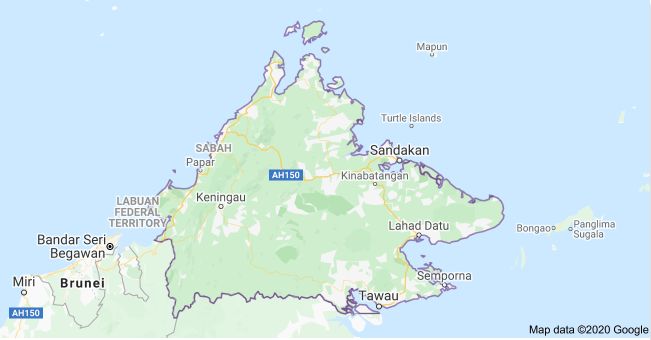
THE Sultanate of Sulu and North Borneo on Tuesday asserted the Philippine claim to Sabah after the nations’ top diplomats sparred on Twitter over ownership of the Malaysian state.
“The people of Sulu have lived on these islands for 600 years and will continue to do so in the centuries to come,” the Sultanate said in a statement.
It also said the 35th Sultan of Sulu and North Borneo is being recognized in Portugal, Serbia and Yugoslavia, Ethiopia and Poland, among other countries.
The Philippines and Malaysia last week revived a long-standing dispute after Malaysian Foreign Minister Hishamuddin Hussein summoned the Philippine ambassador over his Philippine counterpart’s statement that Sabah is not in Malaysia.
Foreign Affairs Secretary Teodoro L. Locsin, Jr. kept his position and moved to summon the Malaysian ambassador in Manila.
Malaysia has stopped paying cession money worth RM5,300 or about P61,300 a year since 2013, Malaysian news agency Bermara said in a July 22 report.
The Sultanate appealed to the Malaysian government and the international community to settle the conflict through diplomatic means.
“We hope the government of Malaysia understands the plight of the thousands of underprivileged and indigenous families of Sulu, who barely survive in Sabah especially during this pandemic,” according to the statement.
“We aspire for an amicable solution to the predicament that affects us all in this region.”
The oil-rich state of Sabah, a territory that is part of Malaysia’s northern Borneo, has been a thorny issue between the Philippines and Malaysia for decades.
About 200 armed followers of a self-proclaimed sultan of Sulu in southern Philippines invaded Sabah state in February 2013, leading to clashes that killed several dozens.
The Sulu Sultanate claims to have leased Sabah to the British North Borneo Company in 1878, a deal that Kuala Lumpur sees as an act of abandonment.
The sultans of Sulu once ruled over Sabah and the Sulu islands. Sabah fell under British control after World War II and joined Malaysia in 1963, shortly after the sultanate ceded sovereignty to the Philippines.
Sabah has abundant natural resources. Its primary exports include oil, gas, timber and palm oil and its other major industries are agriculture and ecotourism.
The Philippines will pursue friendly ties with Malaysia despite maintaining its claim over Sabah state, Presidential Spokesman Harry L. Roque said earlier.
He added that the territorial dispute won’t get resolved soon, and the Philippine government would continue its diplomatic relations with Malaysia.
President Rodrigo R. Duterte said during his election campaign in 2016 he would pursue the Philippines’ territorial claim over one of Malaysia’s 13 states.
In 2016, the Philippines, Malaysia and Indonesia signed a cooperation deal where their navies would work together in fighting Islamic militants in the Sulu Sea. Mr. Duterte and former Malaysian Prime Minister Najib Razak also agreed to set aside the Sabah dispute.
The Philippines has been transporting Filipinos from Sabah back to their home provinces as part of measures to help undocumented Filipinos affected by the global coronavirus pandemic. — Charmaine A. Tadalan
